biometric
Latest

Researchers can use the size of your heart to unlock a PC
Most biometric security has one inconvenience: you have to take an active step to sign in, whether it's putting your finger on a pad or staring at sensors. Wouldn't it be nice if simply being near your device was enough? It might happen. Researchers have created a computer authentication system that uses your heart's shape and size to sign in. It uses low-level Doppler radar to continuously scan your heart's dimensions, granting access so long as you're in the right place. In other words, Cindy-Lou Who couldn't hijack the Grinch's PC when he steps away for a coffee break.
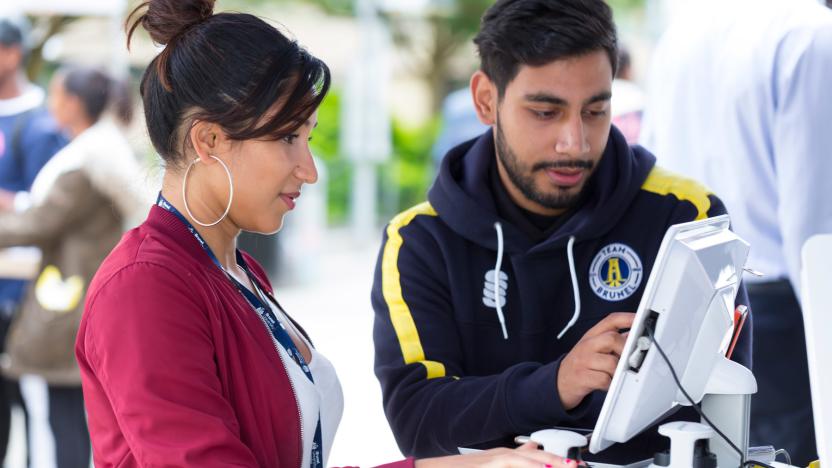
London Costcutter trials finger-vein readers for faster payments
The humble Costcutter supermarket at Brunel University in London has recently become home to a biometric payment system that allows customers to check out with a tap of their finger. The store's owner has begun trialling Sthaler's Fingopay system, which authenticates people by looking at the 3D pattern of veins beneath their fingertip -- one of the most unique identifiers around -- rather than their fingerprint.

Apple questioned about Face ID security by the US Senate
A lot of people quickly raised concerns about privacy and security the moment Apple revealed iPhone X and its Face ID feature. Edward Snowden, for instance, thinks it normalizes face scanning, "a tech certain to be abused." Now, US Senator Al Franken is pressing the tech titan for answers, penning a letter addressed to Apple chief Tim Cook with a list of questions concerning the technology's "eventual uses that may not be contemplated by" its customers.

You can pay at a restaurant by smiling at a camera
As easy as it is to make purchases in the era of tap-to-pay services, it's about to get easier still. Alipay (which handles purchases for Chinese shopping giant Alibaba) has launched what it says is the first payment system that uses facial recognition to complete the sale. If you visit one of KFC's KPRO restaurants in Hangzhou, China, you can pay for your panini or salad by smiling at a camera-equipped kiosk -- you need to verify the purchase on your phone, but you don't have to punch in digits or bring your phone up to an NFC reader.
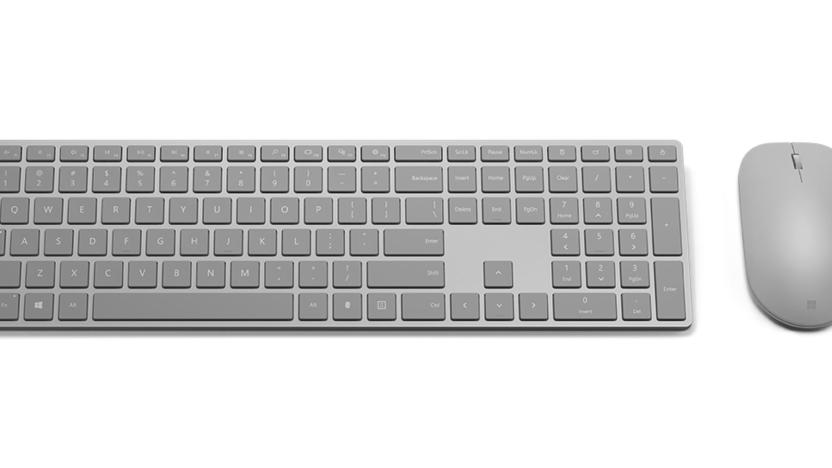
Microsoft’s minimal Modern mouse and keyboard are now available
Microsoft revealed its Modern Keyboard and Mouse last month. Both are styled like the company's Surface devices and the keyboard has Apple-style "chiclet" keys and a sturdy aluminum frame. It also has a fingerprint sensor tucked in between the Alt and Ctrl keys for Windows Hello biometric security. The keyboard and mouse peripherals are now available for $130 and $50, respectively.
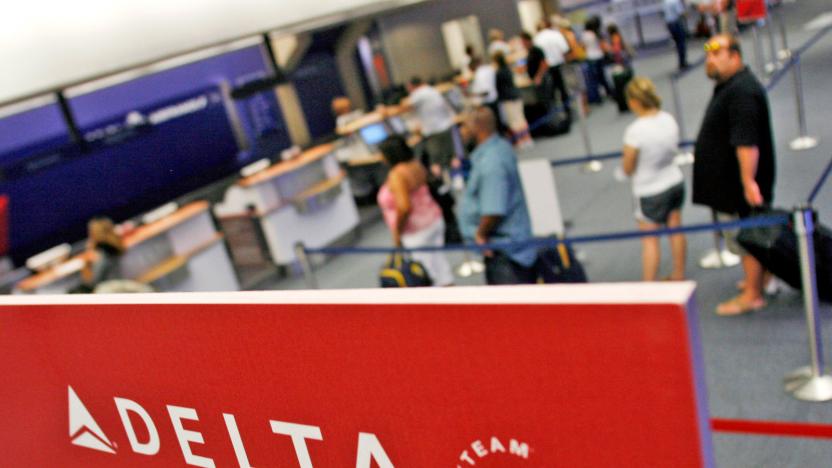
Delta aims to replace boarding passes with fingerprints
Delta is expanding its biometric check-in feature that allows some customers to use their fingerprints instead of a boarding pass. The service was first launched at Ronald Reagan Washington National Airport (DCA) in May and let Delta SkyMiles members enter the Delta Sky Club with their fingerprints rather than a physical ID. Now, those members can use their fingerprints to board their plane.
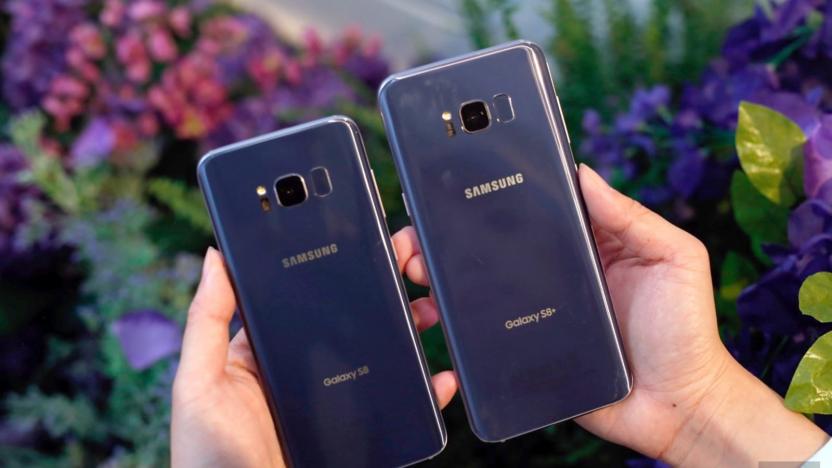
Unlock your PC with your Samsung phone's fingerprint reader
Have a recent Samsung phone and a Windows 10 PC? Life's about to get a bit easier. Samsung has updated its Flow app to let you use the fingerprint reader on Galaxy devices running Android Marshmallow or newer (such as the S6, S7 and S8) to log into any Windows 10 PC using Hello, not just Samsung's own Galaxy TabPro S. If you regularly keep your phone on-hand, you won't have to enter your password every time you sit down at your computer.

A biometric ring could replace your passwords, cards and keys
Smart rings aren't a novel idea: There are plenty of fitness tracking, notification-sending, payment or even protective finger ornaments around. But none have the ability to identify you and authorize your transactions wherever you go. That is, until Token hits the market. It's a biometric ring that can be used to open house doors, start cars, make credit card transactions and sign in to your computer. That all sounds nifty in theory, but without any real cooperation from the third parties that enable those authorizations, Token is all but useless. The good news is that its makers managed to get support from an impressive list of partners including MasterCard, Microsoft, Visa and HID.

Robotic shorts can shave minutes off a marathon time
In marathons, milliseconds matter. A split-second can be the difference between victory and defeat; between setting a record and coming in second. So, it's a big deal when a team of Harvard engineers reveal a pair of shorts that reduce an average marathon time from 9:14 minutes/mile to 8:49 minutes/mile.

The Galaxy S8 iris scanner can be hacked with aging tech
Biometrics are becoming our next de facto security measure, and they're supposed to be a vast improvement on easily-forgotten and hackable passwords. Yet a point-and-shoot camera, laser printer and contact lens is all it took for German hacking group Chaos Computer Club to crack the Samsung Galaxy S8's iris scanner. "By far [the] most expensive part of the iris biometry hack was the purchase of the Galaxy S8," the group wrote on its website. They pulled it off by taking a photo of the target from about five meters away, and printing a close-up of the eye on a laser printer — made by Samsung, no less. A regular contact lens was placed on top of the print to replicate the curve of an eyeball. When the print was held up to the smartphone, the S8 unlocked.

Airports may use face recognition to screen US citizens (update: more info)
Right now, the US is trotting out an airport security plan revolving around facial recognition. It's supposed to automatically register visitors to the US when they leave, and signal when they come back. However, Customs and Border Protection now wants to expand the effort to include virtually every situation where you normally need an ID -- and that could include scanning US citizens. The agency's John Wagner has floated the possibility that face recognition could also be used to scan all arrivals, TSA checkpoints and lounge access, including citizens. CBP hasn't committed to a firm plan, but it tells The Verge it wants to "open the dialogue" to people outside its walls.
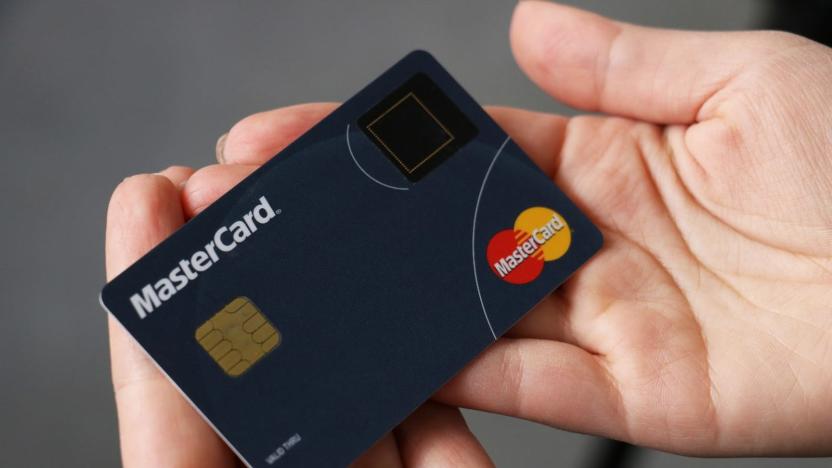
Mastercard adds fingerprint sensors to payment cards
Our fingerprints are quickly replacing PINs and passwords as our primary means of unlocking our phones, doors and safes. They're convenient, unique, and ultimately more secure than easily guessed or forged passwords and signatures. So it makes sense that fingerprint sensors are coming to protect our credit and debit cards. Mastercard is testing out new fingerprint sensor-enabled payment cards that, combined with the onboard chips, offer a new, convenient way to authorize your in-person transactions. Instead of signing a paper receipt or entering your PIN while struggling to cover up the number pad, you simply place your thumb on your card to prove your identity.
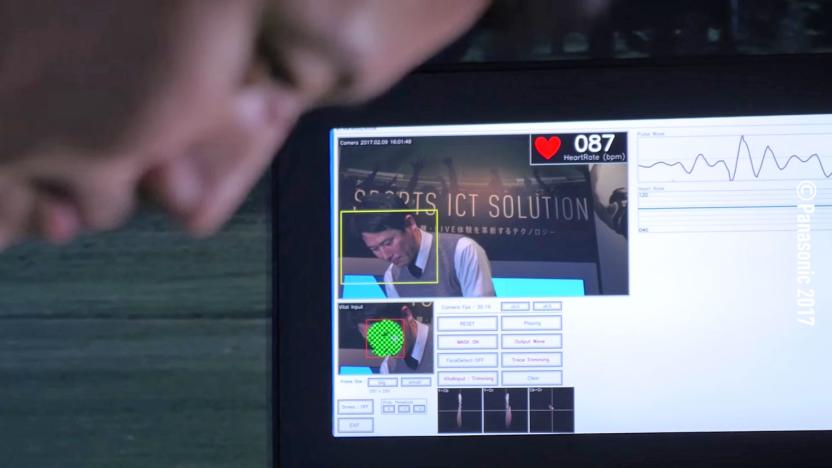
Panasonic can read your heart rate by looking at your face
Being a sports professional means keeping calm in high-pressure situations, or at least pretending you are when actually freaking out. Spectators are typically none the wiser, but Panasonic will be giving viewers some additional insight into the mind of golfers competing at the Panasonic Open Golf Championship 2017, which tees off in Japan later this month. Coverage of the tournament, which is being broadcast on Japanese TV and online, will show the heart rate of golfers on-screen, so you can watch the nerves kick in as someone steps up to attempt a clutch, chip-in birdie. It's intended to add a bit more drama to the otherwise slow proceedings, but just as interesting is how Panasonic plans on making this happen, using what the company calls "contactless vital sensing" by way of a special camera.
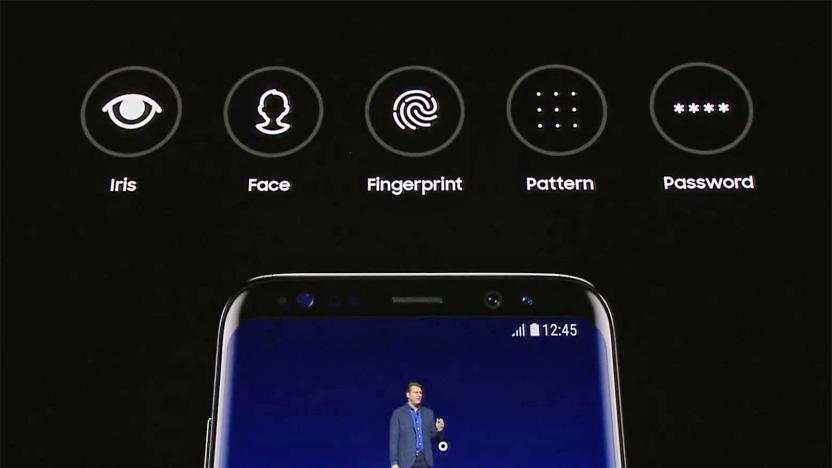
Samsung's Galaxy S8 can sign into websites using your face
The Galaxy S8's face and fingerprint detection are about more than unlocking your phone: If Samsung has its way, you'll use them to sign into seemingly everything online. The company is expanding its Samsung Pass feature to use biometrics to sign into not only a wider array of financial services but also shopping (as rumored) and other websites. Yes, you could start shopping just by staring at your phone for a while. And if you're health conscious, the S8 might save you a trip to the clinic.
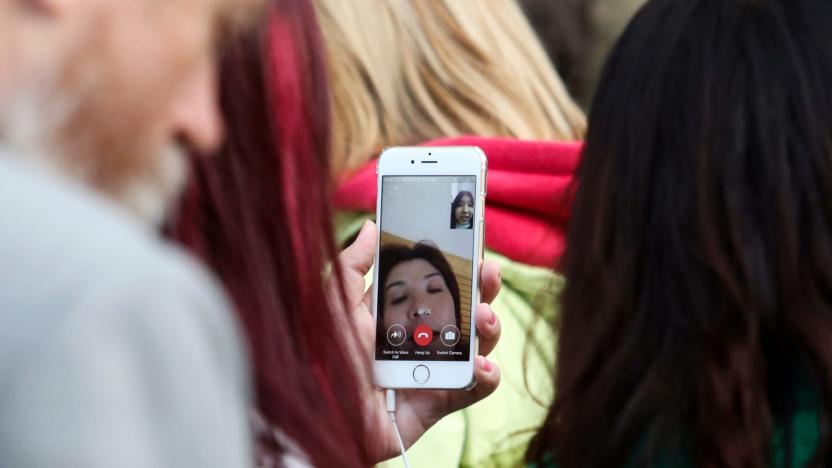
Apple reportedly buys an AI-based face recognition startup
Those rumors of Apple exploring facial recognition for sign-ins might just have some merit. Calcalist reports that Apple has acquired RealFace, an Israeli startup that developed deep learning-based face authentication technology. The terms of the deal aren't public, but it's estimated at "several million dollars." Cupertino would mainly be interested in the promise of the technology than pure resources, in other words.
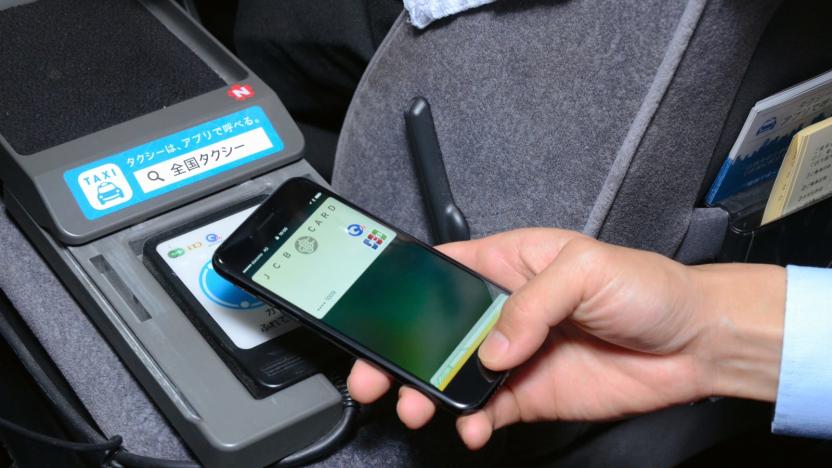
Apple is reportedly reinventing the iPhone's fingerprint reader
Future iPhones may revolve around more than just an eye-catching curved display. KGI Securities analyst Ming-Chi Kuo, who frequently (though not always) has a knack for hardware scoops, believes that Apple is designing a whole new Touch ID fingerprint reader for future iPhones and iPads. In order for Apple to virtually eliminate bezels, it needs a reader that sits under the screen -- and that means a brand new optical sensor. Development is underway, the analyst says, but development is still early enough that the technology might not be ready in time for the 2017 iPhone.

Researchers warn peace sign photos could expose fingerprints
As if the constant data breaches that threaten to expose the one password you use for absolutely everything weren't enough, apparently you now need to start worrying about posting that cute selfie. The peace sign is many people's go-to picture pose, and it's particularly popular in East Asia, but according to researchers it's also the perfect way to expose your fingerprints online. In a study conducted at Japan's National Institute of Informatics (NII), investigators found that, if the focus and lighting was right, they could recreate fingerprints from images shot up to 3 meters (nearly 10 feet) from the subject.
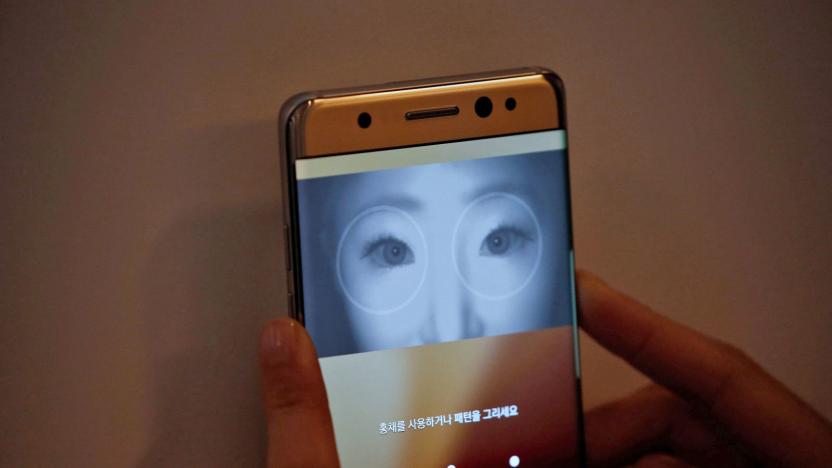
Synaptics combines face and fingerprint recognition on your phone
Fingerprint readers and facial recognition techniques are good for adding a base level of security to your phone without sacrificing convenience. However, they have their limits. It can be hard to switch between methods on a whim, and dedicated intruders can get through if they either make you unlock your phone or develop convincing fakes. Synaptics thinks it has a solution: It's unveiling a "biometric fusion engine" that can combine results from face and fingerprint detection before letting you into a mobile device or PC. Ideally, this makes it easier to sign in even as it adds an extra layer of security.
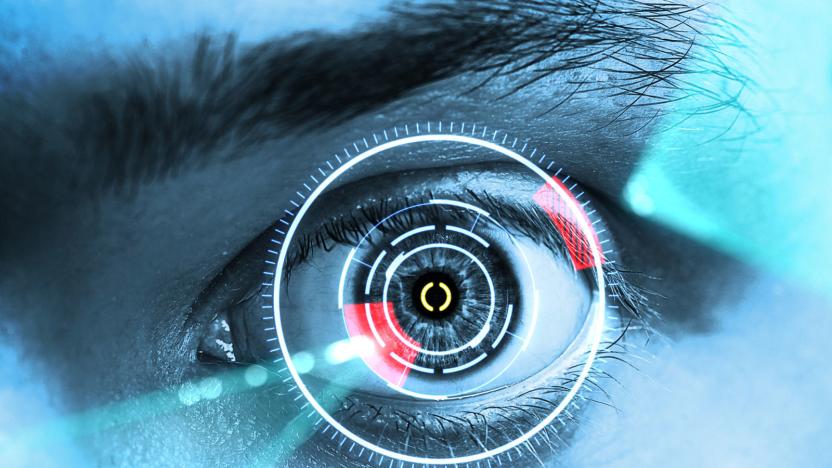
Our fingerprints, eyes and faces will replace passwords
Passwords are a pain in the ass. They're either easy to crack or hard to remember, and when breaches occur you have to come up with a whole new one. So people are trying to do away with passwords altogether, and so far, fingerprint scanners are doing the job nicely.

Barclays swaps passwords for voice IDs for telephone banking
Just as fingerprint sensors have made smartphones more useful and secure, voice-authentication tech is making the dreaded call to customer services that bit more convenient. Following TalkTalk and fellow bank HSBC's example, Barclays has also introduced voice identification to its telephone banking service in the UK. No stranger to biometrics, Barclays has been trialing voice recognition among a subset of customers for several years, only now making it available to anyone with a personal account.







